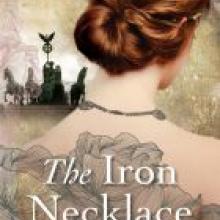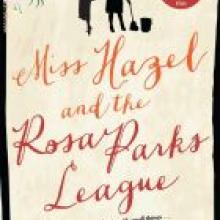
The suicide of her parents, who have left her short of money, sees Stella Myles at a local dance hall, where she dances with men in exchange for money.
In a change of fortune, she gets a job as a companion-nursemaid at Harp's End, a posh Sussex property.
Only when she gets there does Stella discover the job has been orchestrated by her new employer, Douglas Ainsworth, whom she met at the dance hall.
The Last Dance is a perfect period piece set in the 1930s.
After a slowish start, it picks up tempo as Stella is drawn into a relationship with Douglas, or Rafe as he prefers she call him.
As the threat of war looms, she accidentally uncovers one of Rafe's secrets and the relationship - and the novel - gathers intensity.
Another good read from a popular novelist.

The idea behind The Iron Necklace is excellent.
An English woman, Irene, marries an idealistic German architect, Thomas, and goes to live with him in Berlin.
Life is pleasant, if a little dull, for Irene until World War 1 breaks out and she becomes the enemy.
Add Irene's diplomat brother, Mark, moving between London, Washington and Copenhagen, and her sister Sophia, serving as a frontline nurse.
Those factors should have ensured a strong story, but somehow Waterfield misses the target, partly because he fails to get fully into the minds of his female characters and possibly because his approach is too broad.
There's an arrogance, too, in his failure to translate the German phrases he uses.

Miss Hazel and the Rosa Parks League recalls the days when racialism was the norm in most of the United States, especially the South, and Rosa Parks led the fight for equality.
The novel traces the unlikely friendship of two women in 1950s Mississippi: Hazel, a wealthy white, and Vida, a poor black hired to look after her.
The two have just one thing in common: each has lost a son.
Initially the women hate one another and when Hazel tries to befriend her, Vida says: ''I clean your house . . . That makes me your maid, not your friend. That's the difference between coloured folks and white. You get to pick me as a friend and I ain't got no say about it.''
However, as the book develops, the relationship changes and Hazel joins in the push by Vida and other maids to make changes in the teeth of opposition by whites, especially Sheriff Billy Dean.
The book will bog down some readers with its attempts to reproduce the language of the South, but there is plenty of meat under that surface.
• Gillian Vine is a Dunedin journalist.











